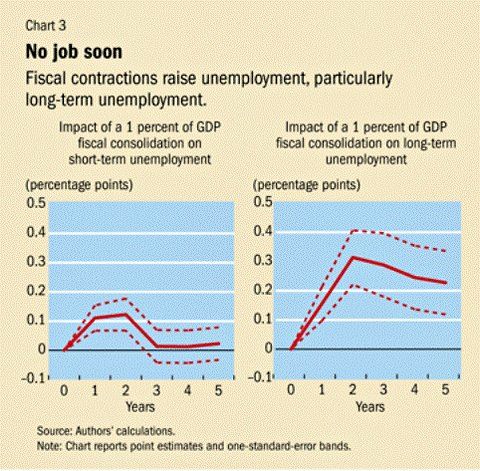Everyone one of these Democrats should lose the support of the DCCC and be primaried.
Blue Dogs backing corporate tax holiday
House Blue Dogs are on board with a temporary corporate tax holiday they argue will boost economic growth.
The group joined a growing bipartisan chorus pressing the congressional deficit-reduction committee to give U.S. multinational corporations a tax break in exchange for investing at home.
[]
The Blue Dog Coalition is backing a bipartisan bill sponsored by Reps. Jim Matheson (D-Utah) and Kevin Brady (R-Texas) that would remove a barrier keeping upwards of $1.4 trillion in American private-sector money overseas, which is similar to a Senate bill introduced last week by Sens. Kay Hagan (D-N.C.) and John McCain (R-Ariz.).
I have no idea what experts they are citing the article doesn’t say. I do know the history if the last time this was done in 2004 when they gave 92% of the money to themselves. Nor did the law which stated the money could not be used to raise dividends or to repurchase shares, stop them.:
There is no evidence that companies that took advantage of the tax break – which enabled them to bring home, or repatriate, overseas profits while paying a tax rate far below the normal rate – used the money as Congress expected.
“Repatriations did not lead to an increase in domestic investment, employment or R.& D., even for the firms that lobbied for the tax holiday stating these intentions,” concluded the study by three economists, including a former official of the Bush administration who took part in the discussions leading to enactment of the plan in 2004.
The study, titled “Watch What I Do, Not What I Say: The Unintended Consequences of the Homeland Investment Act,” was released this week by the National Bureau of Economic Research. It was written by Dhammika Dharmapala, a law professor at the University of Illinois; C. Fritz Foley, an associate professor of finance at Harvard Business School; and Kristin J. Forbes, a professor of economics at the Massachusetts Institute of Technology who was a member of the president’s council of economic advisers from 2003 to 2005.
“The restrictions on how the money will be spent seem to have been completely ineffective,” Ms. Forbes said in an interview this week.
“Dell was a great example,” she added, referring to Dell Computer. “They lobbied very hard for the tax holiday. They said part of the money would be brought back to build a new plant in Winston-Salem, N.C. They did bring back $4 billion, and spent $100 million on the plant, which they admitted would have been built anyway. About two months after that, they used $2 billion for a share buyback.”
The give away also cost the country more than 500,000 jobs:
Following a tax holiday on repatriated foreign earnings in 2004, 58 corporations that benefitted from the holiday slashed a total of nearly 600,000 jobs. These 58 giant corporations accounted for nearly 70 percent of the total repatriated funds and collectively saved an estimated $64 billion from what they otherwise would have owed in taxes.
According to the Joint Committee on Taxation this current clamor by for a tax holiday by the multinational corporations that barely pay any taxes now, would cost the US $80 billion and would do nothing to reduce the deficit and wouldn’t protect or create jobs:
Representative Lloyd Doggett, a Texas Democrat who is a senior member of the Ways and Means Committee, yesterday circulated an estimate from the Joint Committee on Taxation pegging the cost of a repatriation bill at $78.7 billion. An unsuccessful effort to create a similar holiday in 2009 would have cost the U.S. government about $30 billion over a decade in forgone revenue.
“This means we will have to borrow more from foreign creditors or shift a greater burden to American small businesses and families,” Doggett said. Congressional estimators projected that companies would repatriate about $700 billion if offered a 5.25 percent rate, compared with $300 billion during the tax holiday enacted in 2004.
[]
Democrats also maintain that the bill does too little to protect jobs at companies that repatriate overseas funds. They have pointed to such examples as Hewlett-Packard Co. (HPQ), which returned $14.5 billion to the U.S. at a low rate in 2004 and cut its workforce by 14,500 employees in 2005.
Primary these idiots


 Yes, we are still playing and the Republicans have the advantage. So far they have won 98% of everything they asked for and are still holding hostages. The new extra-constitutional super committee of 12 will start work on the next round of hostage negotiations. Composed equally of Democrats and Republicans, three of each from the Senate and the House, the committee is tasked with finding $1.2 trillion in deficit cuts. Here are the members that have been selected by the leadership:
Yes, we are still playing and the Republicans have the advantage. So far they have won 98% of everything they asked for and are still holding hostages. The new extra-constitutional super committee of 12 will start work on the next round of hostage negotiations. Composed equally of Democrats and Republicans, three of each from the Senate and the House, the committee is tasked with finding $1.2 trillion in deficit cuts. Here are the members that have been selected by the leadership:
Recent Comments